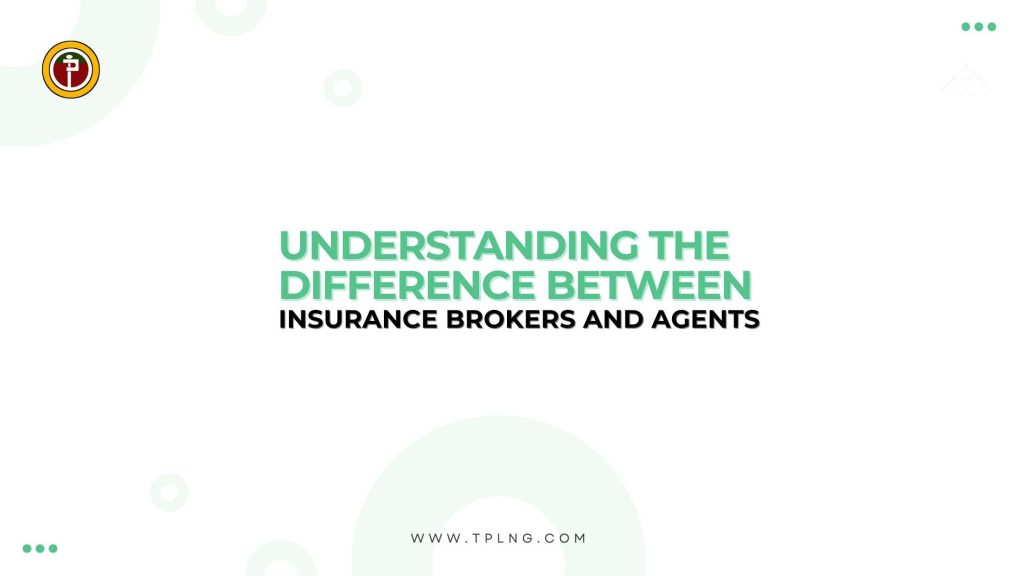Navigating the world of insurance can be complex, and understanding the roles of the various professionals involved is crucial for making informed decisions.
Two key players in this field are insurance brokers and insurance agents. While they might seem similar at first glance, their roles, responsibilities, and loyalties are quite distinct.
This article will explore the differences between insurance brokers and agents to help you understand who they are, what they do, and how they can assist you in your insurance journey.
Who is an Insurance Agent?
An insurance agent is a professional who represents one or more insurance companies. Agents act as intermediaries between insurance companies and clients, helping to match the client’s needs with the products offered by the companies they represent. There are two types of insurance agents:
1. Captive Agents: These agents work exclusively for one insurance company. They can only sell the products of that company and are often deeply knowledgeable about its policies, procedures, and offerings.
2. Independent Agents: These agents represent multiple insurance companies. They have the flexibility to offer a variety of products from different insurers, allowing them to find the best match for the client’s specific needs.
Also read Everything You Need to Know About Vehicle Third-Party Insurance in Nigeria
Who is an Insurance Broker?
An insurance broker, on the other hand, represents the client rather than the insurance company. Brokers work independently to help clients find the best possible insurance policies across a range of insurers. Their primary loyalty is to the client, and they provide a broader scope of options and personalized advice.
Key Differences Between Brokers and Agents
1. Representation and Loyalty:
- Agents represent the insurance companies and have a fiduciary duty to them. Their primary goal is to match clients with the products of the companies they represent.
- Brokers represent the clients and have a fiduciary duty to them. Their main objective is to find the best coverage options available in the market for their clients.
2. Product Offerings:
- Agents are limited to the products offered by the insurance companies they represent. Captive agents have a particularly narrow range, while independent agents have a broader selection but are still limited to their associated companies.
- Brokers have access to a wide array of products from multiple insurers, providing clients with a diverse range of options to choose from.
3. Advice and Service:
- Agents provide advice and services based on the products they are authorized to sell. They can offer detailed information about the policies of their respective companies.
- Brokers offer unbiased advice and can compare multiple policies from different insurers, helping clients find the most suitable and cost-effective coverage.
4. Commission Structure:
- Agents earn commissions from the insurance companies they represent. This commission structure can sometimes influence the products they recommend.
- Brokers also earn commissions from insurance companies, but because they work for the client, their recommendations are typically more aligned with the client’s best interests.
5. Claims Assistance:
- Agents can assist with the claims process, but their involvement might be limited by their allegiance to the insurance company.
- Brokers often provide more extensive claims assistance, advocating for the client to ensure that claims are processed fairly and efficiently.
6. Regulation by NAICOM:
- Agents operate under strict rules and obligations set by the National Insurance Commission (NAICOM). This regulation includes licensing, adherence to ethical guidelines, and ensuring that agents provide accurate information about the insurance products they sell.
- Brokers are also regulated by NAICOM but typically have more flexibility in their operations compared to agents. Both agents and brokers must adhere to NAICOM’s regulatory framework to ensure transparency, accountability, and professionalism in the insurance industry.
Also Read Chronicles Of Insurance Commissioners In Nigeria: Their Highs and Lows
Choosing Between an Agent and a Broker
When deciding whether to work with an insurance agent or a broker, consider your specific needs and circumstances:
- If you prefer a deep understanding of a particular company’s products and personalized service from a representative of that company, an agent (especially a captive agent) might be the right choice.
- If you want a broader range of options and an advisor who prioritizes your needs over those of any insurance company, a broker is likely a better fit.
Benefits of working with an Insurance Broker:
- Unbiased advice and representation
- Access to a broader range of insurance products and companies
- Personalized risk assessment and recommendations
- Competitive pricing and coverage options
- Ongoing support and claims assistance
Benefits of working with an Insurance Agent:
- Familiarity with the insurer’s products and processes
- Potential for closer relationships with the insurer
- May offer specialized knowledge of the insurer’s products.
Also read Understanding Group Life Insurance: Key Insights and Benefits
In conclusion, understanding the differences between insurance brokers and agents is essential for making informed decisions about your insurance needs. Both professionals play crucial roles in the insurance industry, but their loyalties, product offerings, and services differ significantly.
By knowing these differences, you can choose the right professional to help you navigate the complexities of insurance, ensuring you get the coverage that best suits your needs.
At Transparent Protection Ltd, we are dedicated to helping you make informed choices about your insurance. Whether you prefer working with an agent or a broker, our goal is to ensure you have access to the best information and resources to protect what matters most to you.
Take advantage of the next article, subscribe now!
Have questions about claim settlements or need assistance with your insurance policy? Our team is here to help! Reach out to us via email at info@tplng.com or give us a call at 0905-776-6182. We’re committed to ensuring genuine claim settlements and supporting our valued members.
TPL, your satisfaction is our priority.




